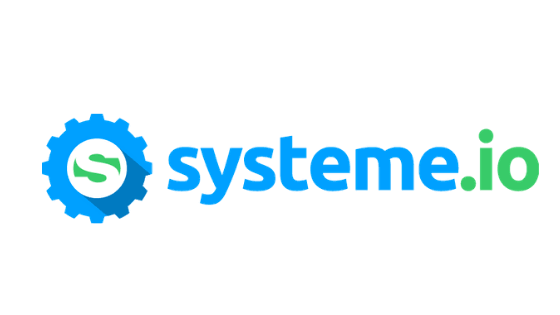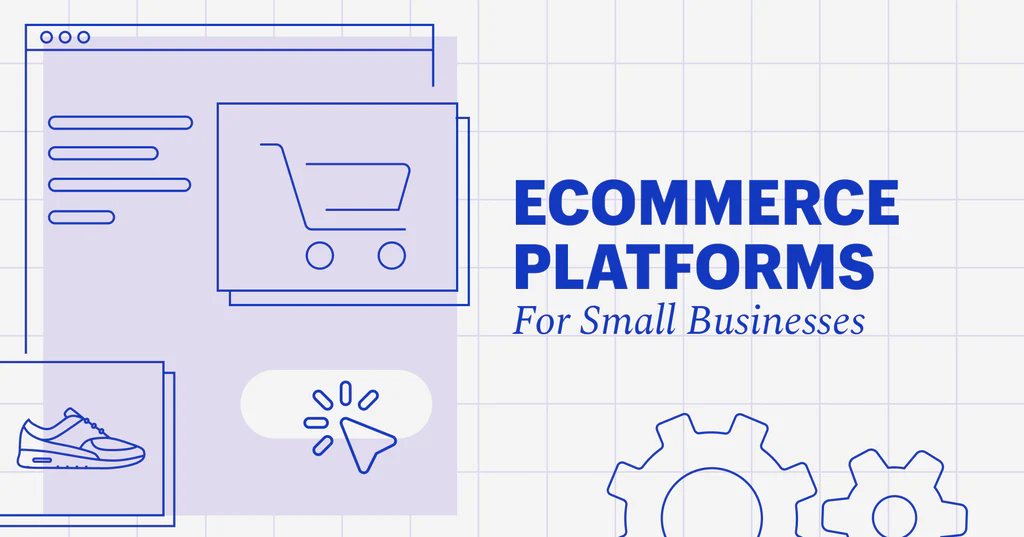Thanks to the internet, you don’t need to rent a place to set up a store anymore, everything can be done online. You can reduce your initial investment and redirect most of it into marketing actions that can attract potential buyers faster.
Now that you’ve started your online business, choosing the best ecommerce platform could drastically change the state of your sales statistics. There are many options out there providing many features for different sizes and types of businesses, so selecting one can be complicated.
After a short tour of the search engines, you will find yourself faced with a myriad of options for creating and managing your online store. But which one suits your needs the most, which one offers professional store templates, Which one provides the best user security for your customers, and most importantly, which one can you easily take over? In short, what is the best ecommerce platform for a small business?
By selecting the best ecommerce platform, all this will be possible for you. This guide aims to show you how to choose the best e-commerce platforms for small business. You’ll learn what e-commerce platforms are, what factors to consider before choosing, and our top ecommerce platforms for small business.
How to select among the best ecommerce platforms for small business?
As previously mentioned, there are a multitude of e-commerce platforms on the internet. There are those adapted to SMEs or beginners, as well as those intended for large industries. Some can be launched with a small budget, others require a more than substantial sum. Many of them offer many essential features for your business, but not all of them have the same ease of use.
You must then list all the things you want to find in your e-commerce platform so that it can meet all your needs. Start with the basic features, continue with the tools and options you would like to encounter. You can then sort out your preferences a little by looking at the different platforms on our list or by searching on the internet.
According to our research, the best ecommerce platforms for small business are the following:
- Shopify
- WooCommerce
- BigCommerce
- SquareSpace
- Wix
- Ecwid
- Weebly
- PrestaShop
- Square Online
- Systeme.io
The 8 factors to consider when choosing an e-commerce platform for small business
To choose the best ecommerce hosting for small business, we recommend you follow the method we used to create our top. By going through all the offers on the internet, we found 8 important points to consider before selecting your ecommerce platform.
The price

To run your business, you should never spend more than you earn. The budget you allocate to your e-commerce software is an essential factor to consider when selecting your platform.
The majority of small business platforms offer monthly subscription pricing plans. You’ll be able to start sorting your ecommerce small business by price. If you absolutely must opt for a more expensive solution, make sure that the platform offers a free trial period before investing.
Note that cheap platforms are never cheap for nothing; they may be taxing significantly more on transaction fees. This is another element to analyze.
The functionalities

This is obvious, but it is important to mention it. If you choose an ecommerce platform, it is mainly for its functionality. Make sure the software you are studying offers at least the basic features, which are:
- a complete website editor
- marketing and communication tools
- a blog tool for SEO optimization
- an intuitive interface
- responsive design themes
Themes

Creating an online store means that you will sell yourself to the public, the visual identity of your sales site is not to be taken lightly. A good ecommerce platform must have several customizable themes to meet the needs and codes of the company that uses it.
The integrations

This section encompasses two essential parts of your business: third-party application integration and integration with other software. Your ecommerce platform is not usually the only software you will use to run your business. If you have a website beforehand, it would be advantageous for you if your e-commerce platform could be linked to it.
There are also many companies using CRM software to manage their customer and internal relationships. Compatibility with both software programs would maximize time and cost savings for your company.
For plugins and internal integrations (apps), while some platforms have internal email marketing functionality, there are more powerful dedicated apps. So as not to hinder the efficiency or pace of your various processes, compatibility is a huge issue to consider.
Scalability

All businesses start small and grow over time. This also means that the tools used and the needs of a business evolve. It is crucial that an e-commerce platform can support a business as it evolves by providing the right features without taking a toll on its finances.
To ensure your sustainability, choose a platform that allows you to grow and not change platforms at each stage of your growth.
Handling (ease of use)

A small business by definition does not have as much budget as a large and established company. In other words, it will not always have the luxury of hiring a completely dedicated team to manage its e-commerce platform.
It is important that an e-commerce platform provides a maximum of functionalities, but if it is too difficult for you to take it in hand, it will mostly be a brake on your development.
The best e-commerce platforms for business should be easy to use and the features equally accessible. That’s why in most of the website editors of these platforms, drag and drop is becoming normalized.
The security

Literally, no one wants to buy from an insecure site. Security is undoubtedly the most important aspect of your online store, as it is the main concern of your potential buyers. You need to protect their personal and transaction data.
That’s why your e-commerce platform must provide you with essential security features, such as :
- PCI (Payment Card Industry) compliance
- SSL (Secure Sockets Layer) certification
- Fraud protection
- Backup of important data
The customer support

Even with the most accessible features and interface in the world, you are not safe from a software bug, a handling error, or you just want to get a piece of information that is important to you. The customer support must be able to help you and answer you at any time.
The best small business e-commerce platforms are those that help you grow by offering you the best support and peace of mind.
The 10 best ecommerce platforms for small business
Shopify

The choice of most and probably the best platform for small businesses is Shopify. You can easily create an online store without any programming knowledge. The platform includes more than a hundred themes (free and paid)and thousands of integrations, with which you can customize your store and back-end to your liking.
Shopify is not limited to the creation of sales sites, it is a complete e-commerce platform. Moreover, you won’t have to worry about hosting, you can buy your domain directly on Shopify and the bandwidth is unlimited
Shopify prices
If you want to get started with Shopify, the entry price is $29/month for the cheapest package. The latter includes all the features necessary to launch and manage a small online store. You can always upgrade to a more expensive package to get more features to support your growing online business.

Create your Shopify store for only $1 during 90 days
The advantages and disadvantages of Shopify
The advantages
- Ease of use
- Very large library of applications and themes
- Free 3-day trial period
- Possible evolution thanks to the
different price plans - It can be linked to a physical store
The Disadvantages
- High transaction fees if you don’t use Shopify Payment
- Abandoned cart recovery feature only available in premium plans
- Poorly developed SEO features
If you want to learn more about Shopify, check out our full review on the ecommerce platform.
Our rating on Shopify
Discover our evaluation of the Shopify tool. It is based on all the parameters we have analyzed throughout the article.

4.5/5
WooCommerce

WooCommerce is a WordPress plugin that turns your website into an online store. As a reminder, nearly 40% of the websites on the Internet have been created on WordPress. It is an open source e-commerce software, which means that it is free and can be modified according to your convenience. It is possible to create websites by modifying the themes provided. Moreover, there are endless extensions and plugins that you can integrate with your store under WooCommerce to build it to your liking.
However, if you want to take advantage and make full use of WooCommerce, you need to learn the basics of WordPress or hire a professional to set up your online store.
WooCommerce prices
As previously said, WooCommerce is a free open source software. However, this also means that you have to take care of all technical issues such as hosting, security certifications (SSL) as well as the modeling itself of your online store.
Add to that the cost of the various integrations necessary for your store, which can easily cost several hundred euros. Thus, for a professional store, count between 200 and €3000.
The advantages and disadvantages of WooCommerce
The advantages
- Open source software
- Ability to create customer accounts in addition to user accounts
- A plurality of free and paid themes
- An infinite number of integrations to create an e-commerce store with a complete back-end
- Possibility of advanced customizations
The Disadvantages
- You have to buy hosting, domain and SSL certification
- Difficult to get started
- Requires coding knowledge to take full advantage of the platform
Our rating on WooCommerce
Discover our evaluation of the WooCommerce tool. It is based on all the parameters we have analyzed throughout the article.

3,3/5
BigCommerce

BigCommerce, like Shopify, is one of the most used ecommerce platforms. Tens of thousands of online stores have been created on BigCommerce. It is a platform open to beginners thanks to its ease of use and fairly contained pricing plans.
BigCommerce was designed for small businesses or beginners with little or no knowledge of e-commerce.It offers all the basic features of the best ecommerce platforms for small business, such as:
- Package tracking
- SEO tools
- Couponing
- Amazon FBA integration
- A catalog of applications to customize your store
- Responsive design themes
BigCommerce prices
BigCommerce offers many plans ranging from $29/month to $299/month. Each plan allows you to offer an unlimited amount of products. You’ll have all the features you need to create a functional store from the first plan.
Advantages and disadvantages of BigCommerce
The advantages
- Possibility of scalability thanks to the different tariff offers
- No transaction fees
- Multiple integrations and applications to add functionality
- Drag and drop editing of your store
- Excellent SEO performance
The Disadvantages
- Slowdowns may be encountered
- No native one-click upsell functionality is available, you have to pay for a third-party application
- Abandoned cart recovery and product search features are only available in premium plans
Our rating on BigCommerce
Discover our evaluation of the BigCommerce tool. It is based on all the parameters we have analyzed throughout the article.

4,1/5
SquareSpace

SquareSpace is not originally an e-commerce platform, but a CMS and an online site editor. But as the market has evolved, it has become one of the most popular platforms for merchants by having integrated e-commerce features to their online platform.
Just like Shopify, it is a SaaS. Hosting, domain and SSL certification are included in the subscription of your choice. The platform’s basic package allows you to sell custom products as well as digital products. By upgrading to the higher packages, you will be able to use the shopping cart recovery, up-selling and cross-selling features.
SquareSpace also offers a large library of applications that you can integrate with your store. But the number of integrations you can have is limited. If you want to know more, you have to touch the code.
SquareSpace prices
SquareSpace offers 3 pricing plans ranging from $23/month to $49/month, if you opt for an annual payment, to create and manage your online store. This makes it a great alternative to Shopify and BigCommerce in terms of pricing.
Advantages and disadvantages of SquareSpace
The advantages
- Easy to use
- Intuitive interface
- No additional transaction fees
- Ideal for small budgets and beginners
The Disadvantages
- Only PayPal, Stripe, and Square are available as payment gateways
- There is a limit to the number of applications you can use
- Offers fewer features than its competitors at the same price and in general
Our rating on SquareSpace
Discover our evaluation of the SquareSpace tool. It is based on all the parameters we have analyzed throughout the article.

3,4/5
Best Ecommerce Platforms for Small Business : Wix

In our top of the best ecommerce platforms for small business, we have Wix, a low-budget website editor. Its ease of use makes it a must for small businesses.
It is a very flexible e-commerce platform that does not require any code knowledge to use. However, it offers far fewer themes to modify than its competitors. In addition to offering email features to recover abandoned carts, sales of digital products, SEO and tracking tools, Wix provides you with a landing page editing tool.
Wix prices
Aimed at small businesses as well as small budgets, Wix is priced between $23 and $49 per month. Of course, if you’re looking for additional features by integrating applications, you’ll have to pay a subscription fee for each of them, as with most e-commerce platforms.
Advantages and disadvantages of Wix
The advantages
- The ease of use
- The speed of loading the website
- The possibilities of SEO optimization
- The proposed templates are very professional despite their number
- Limited scalability
The Disadvantages
- You can’t easily immigrate to another platform, you have to rebuild everything
- The use of many applications complicates its use
Our rating on Wix
Discover our evaluation of the Wix tool. It is based on all the parameters we have analyzed throughout the article.

4,1/5
Best Ecommerce Platforms for Small Business : Ecwid

Ecwid is a small business e-commerce platform that allows you to either create an online store from scratch or link a store to an existing website. The software is targeted at small and medium-sized businesses that want to start an ecommerce business. It currently has over 1.5 million users worldwide.
Just like any other e-commerce platform, Ecwid allows you to manage your product catalog. Nevertheless, it will work best with a limited list of products. You can follow the evolution of your stock as well as your promotions thanks to the different discount codes, the discounts or the free deliveries. You can also add several payment options to your store in order to satisfy your different customers.
Ecwid is particularly interesting for businesses with less than a dozen products, as the platform offers a free plan with which you can create a fully operational store. You can edit and customize your store in a very short time, and you will not be subjected to any intrusive advertising.
Ecwid prices
As previously mentioned, Ecwid offers a completely free offer at $0/month. And by the way, this is the one we recommend if you have less than 10 products to sell. If you want to take advantage of all the features of the platform, you must go through a paid plan, costing between $15/month and $99/month.
Advantages and disadvantages of Ecwid
The advantages
- A free plan
- No additional transaction fees
- Drag and drop website editor
- Multichannel selling
- Unlimited bandwidth
The Disadvantages
- Free plan limited to 10 products
- No free trial period to test the paid plans and no refund in case of dissatisfaction
Limited customization by the editor
Our rating on Ecwid
Discover our evaluation of the Ecwid tool. It is based on all the parameters we have analyzed throughout the article.

3,7/5
Weebly

Weebly is the perfect solution for small businesses looking to create a simple e-commerce site that offers marketing automation features. Its strengths lie in the design of the templates they offer and the ease of use it provides.
It is perfect for people who have no knowledge of coding or web design, everything is at hand. On the other hand, unlike all the platforms presented in this top, the platform is not ideal for advanced customizations, so calling a developer will not be of any use to you.
Weebly offers almost the same features as a Shopify or even a BigCommerce. However, if you want to sell digital or custom products, you need to go through the premium plans.
Unfortunately, Weebly has many gaps in terms of functionality, especially if you want to grow your average shopping cart. Indeed, even with third-party applications, the platform does not allow you to :
- Make upsells in one click
- Automatic basket recovery emails
- Track customer packages
- Offer subscriptions to customers
Weebly prices
Depending on the plan you choose, you will pay between $8/month and $38/month to use Weebly. That’s not including the cost of third-party applications. Weebly remains a great, affordable ecommerce website option for small businesses.
The advantages and disadvantages of Weebly
The advantages
- An intuitive dashboard to track all operations on your online store
- Beautiful design for your store
- Marketing automation
The Disadvantages
- Sites take longer than average to load
- Additional transaction fees
- The platform is not adapted to SEO optimizations
Our rating on Weebly
Discover our evaluation of the Weebly tool. It is based on all the parameters we have analyzed throughout the article.

3,3/5
Best ecommerce platforms for small business : PrestaShop

Just like WooCommerce, PrestaShop is an open source e-commerce platform. It offers similar advantages and equally similar disadvantages. Downloading and using the platform is completely free, but you inevitably have to pay to take advantage of the more technical points that hosted solutions offer.
PrestaShop is not a “user-friendly” software. The platform provides you with 2 210 customizable templates with responsive design. You can modify them slightly (adding a logo and changing the page format) using the WYSIWYG editor. However, for any advanced customization, you must either learn to code or hire a web developer.
PrestaShop allows you to create an e-commerce store that will fit all types of business. This is possible thanks to the many plugins you can integrate to your store. You can even target the international market, as many of its tools are available in several languages. However, it is good to know that not all third-party applications are compatible with each other, so you should always be careful.
PrestaShop prices
As previously mentioned, PrestaShop is open-source software, so it is free to purchase. Unfortunately, to make it operational and secure, you have to pay for the hosting, the domain, the SSL certificate as well as for the majority of the applications you will use.
Of all the available integrations, only 150 are free. Count $50 for the cheapest and nearly $860 for the most expensive. As for themes to modify for your online store edition, they cost between $75 and $740.
Advantages and disadvantages of PrestaShop
The advantages
- Sell internationally
- Online platform as well as local ecommerce platform
- Huge community to help you build your e-commerce site
The Disadvantages
- You have to pay for your hosting, your domain and your SSL certificate
- Applications can quickly become very expensive
- There is no native payment gateway
- Not all applications are compatible with each other
- You have to hire someone to maintain your site
- Customer support is inefficient because of the many third-party applications to make your store work properly
Our rating on PrestaShop
Discover our evaluation of the PrestaShop tool. It is based on all the parameters we have analyzed throughout the article.

3/5
Square Online

Square Online is the e-commerce platform of Square, a company known for its payment gateway that can integrate with most of the platforms mentioned in our top. Square has decided to combine business with pleasure by developing complete e-commerce functionalities in addition to accepting payments.
Square Online offers features similar to the most popular e-commerce platforms. It allows you to create and customize your online store with a drag and drop editing tool and customizable themes. The platform allows you to sell physical products, digital products, tickets, and even make donations.
For the back end of your ecommerce site, Square Online offers, among other things :
- Automated inventory
- Discount coupons
- Gift cards
- SEO tools
- Email capture forms
Square Online Prices
What makes Square Online different from its competitors is that the platform offers a completely free plan. It includes basic features and allows you to sell unlimited products. However, the storage capacity is limited to 500 MB, you can’t change your domain name, and you can only use Square’s in-house gateway.
If you want more freedom, more features and also to remove Square’s ads from your site, you should opt for a paid plan available from $29/month.
The advantages and disadvantages of Square Online
Advantages
- Free plan
- Intuitive interface
- Easy to use
- Integrated payment gateway
- Ideal for stores with limited catalogs
Disadvantages
- Limited functionality
- Limited customization possibilities
- Limited payment options, you must upgrade to a premium plan to use PayPal
- Scalability almost impossible
Our rating on Square Online
Discover our evaluation of the Square Online tool. It is based on all the parameters we have analyzed throughout the article.

3,5/5
Systeme.io

Unlike all the platforms in this top, Systeme.io is not only dedicated to e-commerce. In fact, it is an all-in-one online business platform. This means that it not only allows you to create an online site where you can sell your product, but it also allows you to manage all other aspects of your business.
Systeme.io is intended for people and companies who do not want to use several software programs to handle the different aspects of their business. In these terms, the software proposes as functionality:
- The creation of e-commerce site by drag and drop
- The creation of a member space for customers
- Inventory management
- Customer relationship management
- Marketing and email automation
- Creation of sales tunnels
- Selling online training
- Creation of an affiliate program
In general terms, Systeme.io is a fairly complete software for managing an online business. It doesn’t offer very advanced e-commerce functionalities, but it deserves its place in the best ecommerce platforms for small business.
Systeme.io's prices
A huge positive point of Systeme.io is that it offers a free plan. However, if you want to take advantage of all the e-commerce features of the platform, you should opt for a paid plan costing between €27/month and €97/month.
Advantages and Disadvantages of Systeme.io
Advantages
- All-in-one marketing software
- Marketing automation and email campaigns
- Very easy to use
- Creation of complete sales tunnels
- Ability to sell different types of products
- Very responsive customer support
Disadvantages
- Limited functionalities for stores with many products
- Few templates available
Our rating on Systeme.io
Discover our evaluation of the Systeme.io tool. It is based on all the parameters we have analyzed throughout the article.

3,7/5
Comparison table of the 10 Ecommerce platforms for small business
| Platforms | Added value | Functionalities | Performance | Ease of use | Design and themes | Integrations | Overall Score |
|---|---|---|---|---|---|---|---|
| Shopify | 4.5 | 4 | 4.4 | 4.9 | 4.5 | 4.5 | 4.5 |
| WooCommerce | 4.1 | 3 | 3.5 | 2 | 4.6 | 2.5 | 3.3 |
| BigCommerce | 4.1 | 3.8 | 4.3 | 4.6 | 3.5 | 4 | 4.1 |
| SquareSpace | 3 | 3.1 | 3.5 | 4 | 4.2 | 2.6 | 3.4 |
| Wix | 4.4 | 3.5 | 4 | 4.5 | 4.9 | 3.5 | 4.1 |
| EcWid | 4 | 3 | 3 | 4.2 | 3.9 | 3.9 | 3.7 |
| Weebly | 3 | 3 | 3.5 | 3.4 | 4.5 | 2.5 | 3.3 |
| PrestaShop | 4.2 | 2.5 | 2.5 | 2 | 4 | 3 | 3 |
| Square Online | 3.5 | 3.5 | 3.5 | 4 | 4.5 | 2 | 3.5 |
| Systeme.io | 4 | 4.2 | 4 | 4.1 | 3.9 | 2 | 3.7 |
Conclusion - Best ecommerce platforms for small business
To recap, choosing the best ecommerce platforms for small business is based on your needs and goals. Each company being different and looking for different features, it is your duty to list them to facilitate your research
When it comes to small business e-commerce platforms, it is imperative that you pay attention to the 8 points that are: price, features, themes, integrations, scalability, ease of use, security, and customer support. By checking positively in all these points, you will have the most suitable platform for your business.
We’ve shown you the importance of a good e-commerce platform for business, how to choose it, and we’ve come up with our own top of the best ecommerce platforms for small business to help you in your search.
Now you know which ecommerce platform is best for small business. However, always take the time to cross-check the information before making your choice, a wrong decision will have negative repercussions for your business.
FAQ
What type of ecommerce is best for small businesses?
According to our research, the best ecommerce platforms for small business are the following:
- Shopify
- WooCommerce
- BigCommerce
- SquareSpace
- Wix
- Ecwid
- Weebly
- PrestaShop
- Square Online
- Systeme.io
What is the best ecommerce platform for startups?
The best e-commerce platform for startups is Shopify. Its features are complete, its handling does not require any programming knowledge, and its different offers are adapted to the limited budgets of startups.
What is the best ecommerce platform for 2023?
The best e-commerce platform is the one that best suits your business needs. Nonetheless, the one that comes closest to that title with its various integrations, features, and ease of use is Shopify.
Is Shopify worth it for a small business?
We recommend Shopify among all e-commerce platforms, because it offers you all the keys in hand to create, manage and grow your online business.
